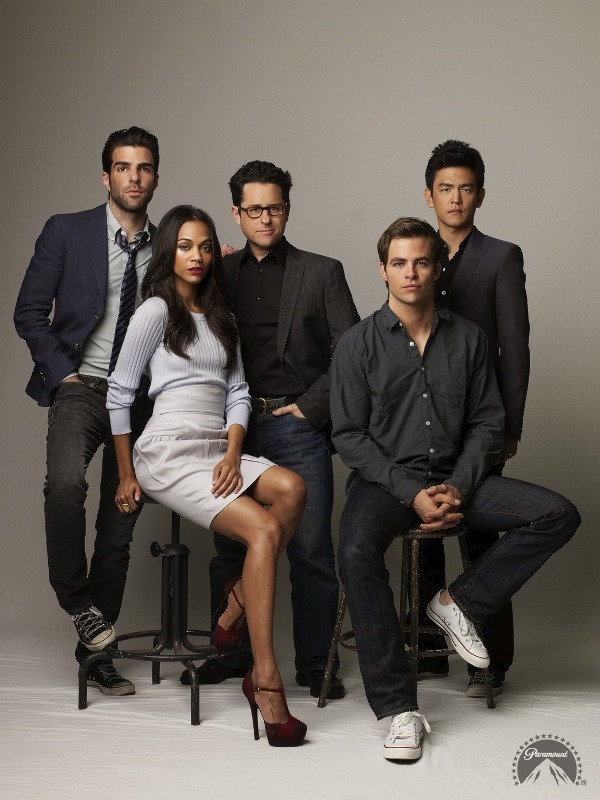When it comes to Star Trek, the 2009 reboot directed by J.J. Abrams is often regarded as a bold reinvention of the iconic franchise. This film not only reimagined the beloved characters but also introduced a new generation of fans to the legendary crew of the USS Enterprise. The casting was nothing short of remarkable, with actors like Chris Pine as James T. Kirk and Zachary Quinto as Spock bringing fresh energy to their roles while staying true to the essence of the original series.
The Reboot: A New Era for Star Trek
This cinematic revival of Star Trek was more than just a remake; it was a reinterpretation that paid homage to its roots while boldly venturing into uncharted territory. The film cleverly established an alternate timeline, known as the Kelvin Timeline, allowing for creative freedom without directly contradicting the events of the original series. This narrative device enabled the filmmakers to explore familiar characters in entirely new contexts, offering both nostalgia and novelty.
The cast brought vitality and depth to their respective roles, breathing life into the storied universe. Chris Pine’s portrayal of Kirk captured the cocky charm and leadership qualities of the character, while Zachary Quinto’s nuanced depiction of Spock added layers of complexity to the half-Vulcan, half-human enigma. Leonard Nimoy’s inclusion as Spock Prime bridged the gap between old and new, lending authenticity to the story.
Remembering Anton Yelchin
One of the standout performances came from Anton Yelchin, who portrayed Chekov with infectious enthusiasm and wit. Tragically, Yelchin passed away at the young age of 27, leaving behind a legacy cherished by fans and colleagues alike. The Star Trek community rallied together to honor his memory, celebrating his contribution to the franchise and recognizing him as an integral part of this modern iteration.
Abrams’ decision to intertwine the past and present casts—most notably through Leonard Nimoy reprising his role alongside Quinto—was initially met with skepticism. However, the execution proved seamless, enriching the narrative rather than detracting from it. Nimoy’s Spock served as a mentor figure, grounding the younger version played by Quinto in wisdom and experience.
Kirk vs. Spock: A Dynamic Duo
At the heart of the film lies the relationship between Kirk and Spock, two individuals whose contrasting philosophies create tension yet ultimately foster mutual respect. Kirk, the impulsive farm boy from Iowa, embodies human emotion and instinct, while Spock represents logic and reason. Together, they form an unlikely alliance that drives the plot forward and exemplifies the spirit of exploration central to Star Trek.
As the fate of the galaxy hangs in the balance, these rivals must set aside their differences and work together. Their partnership becomes the cornerstone of the mission, showcasing how diverse perspectives can unite to overcome seemingly insurmountable challenges. It’s this dynamic that resonates deeply with audiences, reminding us of the power of collaboration and understanding.
Casting Choices That Defined the Film
The ensemble cast deserves immense credit for elevating the material. Supporting players such as Zoe Saldana as Uhura, Karl Urban as Dr. McCoy, and Simon Pegg as Scotty delivered memorable performances that solidified their places within the Star Trek pantheon. Each actor brought something unique to their role, contributing to the overall success of the film.
It’s worth noting that many members of the cast were in their thirties or older during the release of Star Trek (2009). This choice helped maintain continuity with the original series while appealing to contemporary audiences. By blending youthful exuberance with seasoned professionalism, the film struck a perfect balance.
A Legacy Worth Celebrating
While some purists may argue that the 2009 reboot lacks certain elements of the classic Star Trek feel, there’s no denying its impact on popular culture. The film revitalized interest in the franchise, paving the way for future installments and spin-offs. Moreover, it demonstrated the enduring appeal of Gene Roddenberry’s vision—a world where humanity strives toward progress, unity, and discovery.
In conclusion, Star Trek (2009) stands as a testament to the power of reinvention. Through exceptional storytelling, compelling characters, and visionary direction, it succeeded in capturing the imagination of millions. Whether you’re a lifelong fan or new to the series, this film offers an exhilarating journey into the cosmos—one that continues to inspire awe and curiosity about the possibilities beyond our world.

